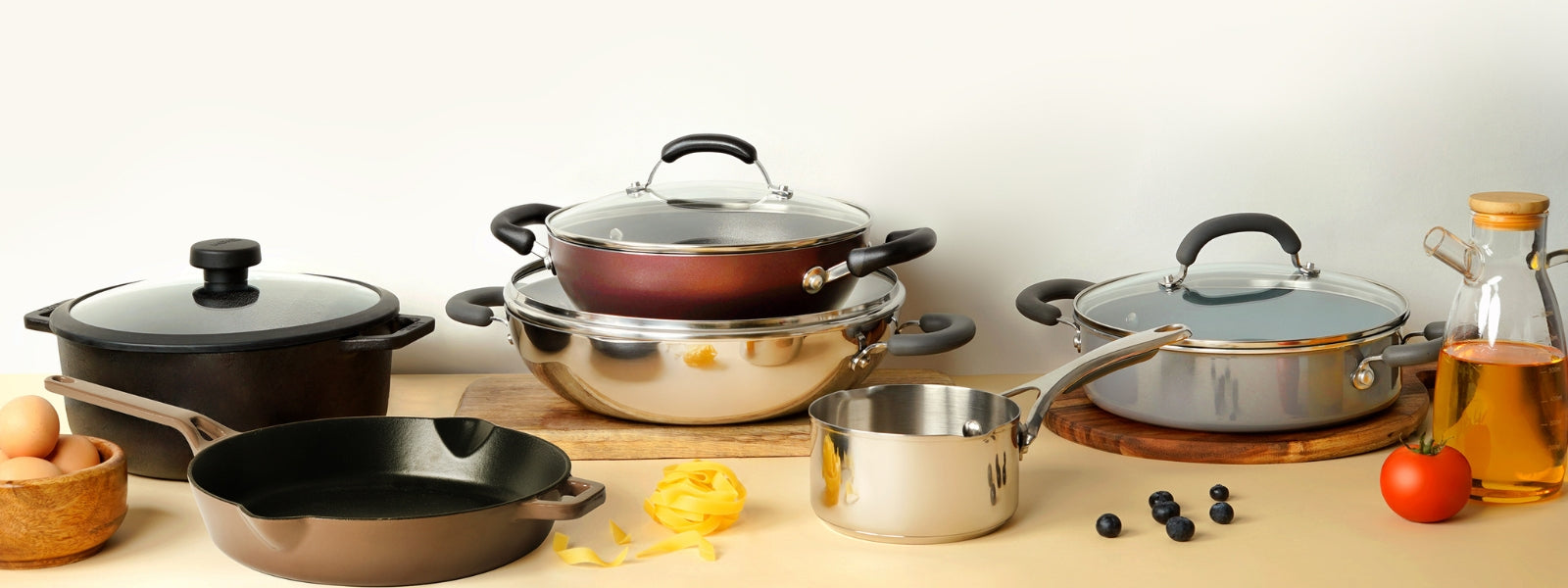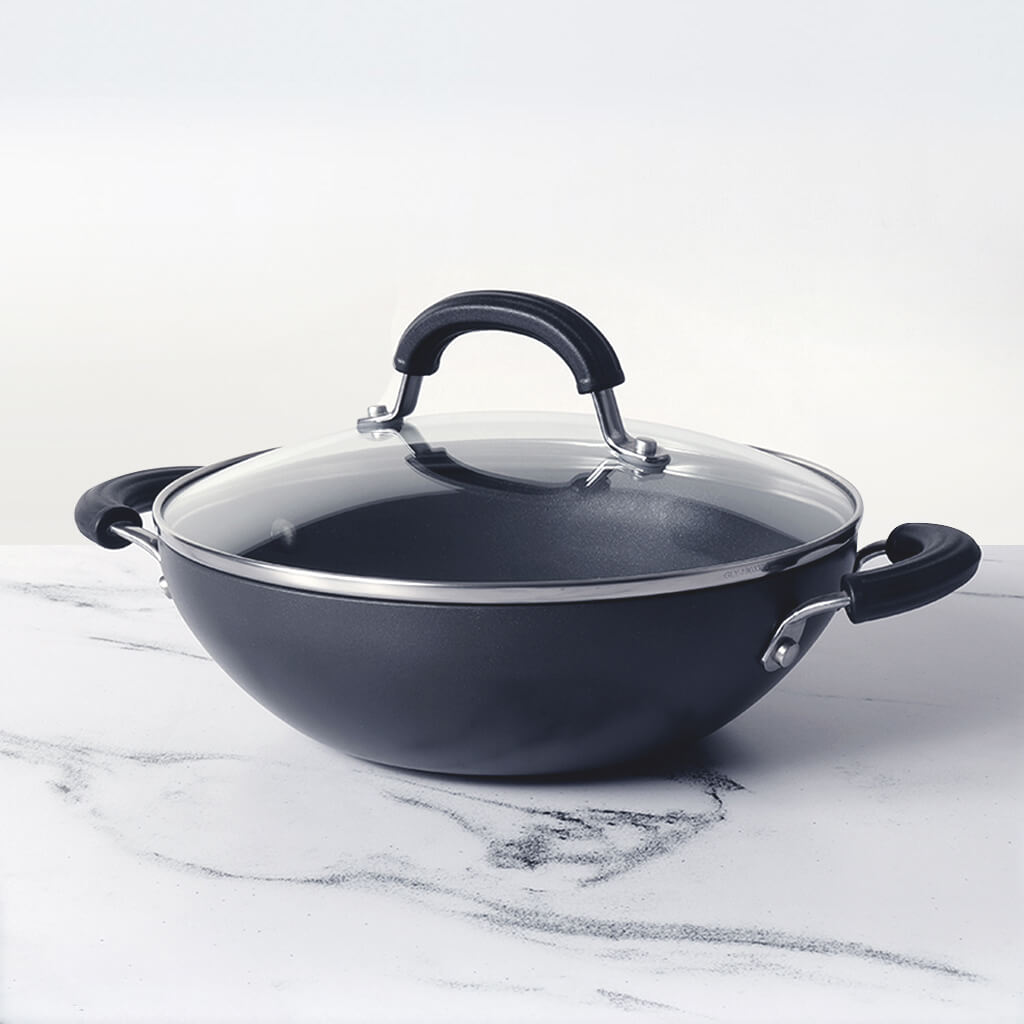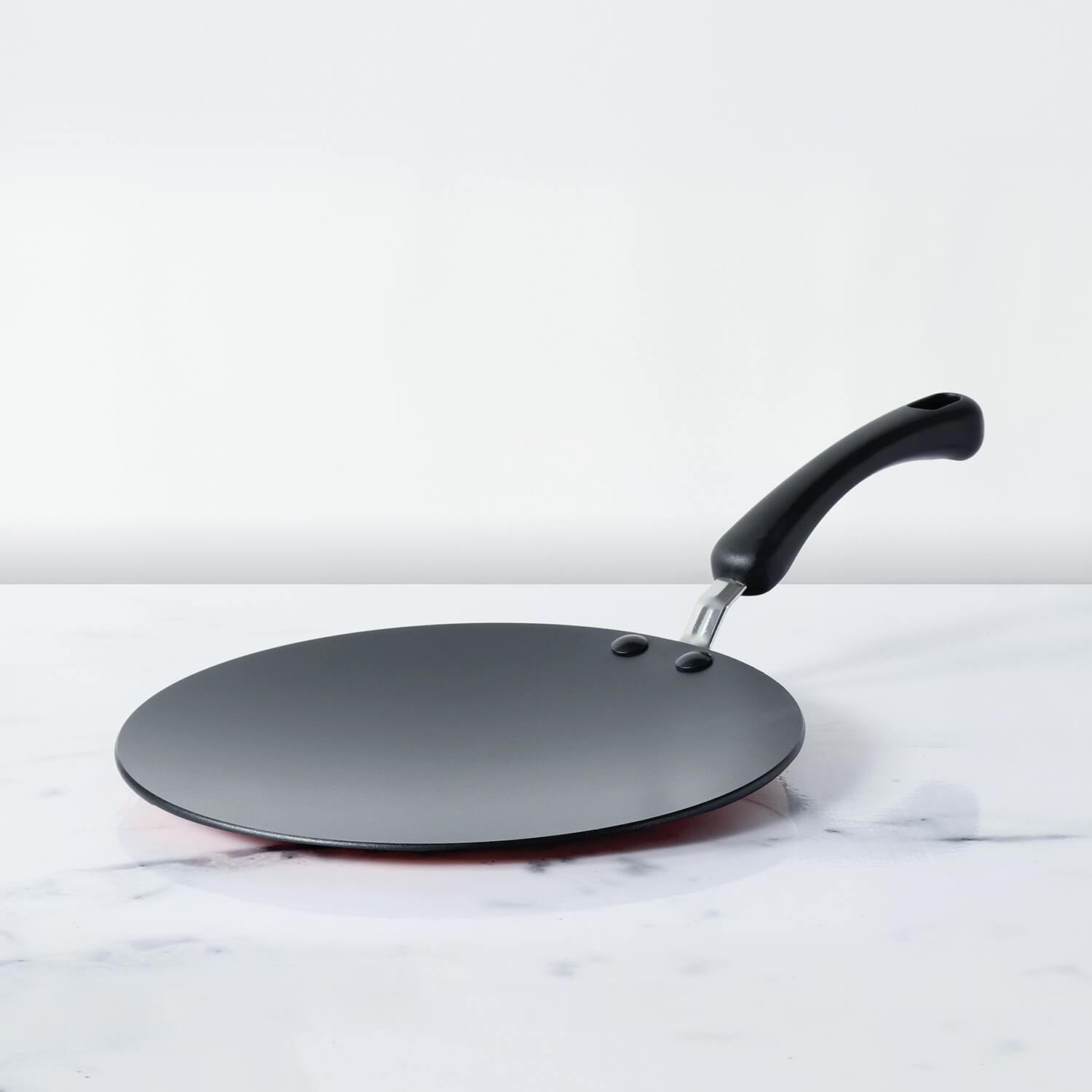To reduce oil intake with nonstick cookware, start by investing in high-quality pans and pots with reliable nonstick coatings. Preheat the cookware adequately before adding ingredients to ensure optimal cooking results without sticking. Utilize cooking techniques such as sautéing, stir-frying, and grilling, which require minimal oil or fat. Consider using cooking sprays sparingly or opt for healthier oil alternatives like olive oil or avocado oil when necessary. Monitor cooking temperature to avoid excessive heat that can lead to oil breakdown. Additionally, explore dry cooking methods such as roasting or baking for certain foods, which eliminate the need for oil altogether.
Table of Contents
Does Non-Stick Cookware Help Reduce The Oil Uses?
Yes, non-stick cookware can help reduce the use of oil during cooking. The non-stick coating on the surface of these pans prevents food from sticking, allowing you to cook with minimal oil or even without oil altogether in some cases. The smooth and non-porous surface of non-stick cookware ensures that ingredients easily release from the pan without leaving residue behind, reducing the need for added oil to prevent sticking. By using non-stick cookware, individuals can enjoy healthier cooking methods with less oil, leading to lower calorie intake and potentially supporting weight management goals. Additionally, reducing oil usage can also promote heart health and lower the intake of unhealthy fats, contributing to overall well-being.
Does The Quality Of Non-Stick Coating Impact The Oil Use?
Yes, the quality of non-stick cookware can significantly impact the amount of oil used during cooking. Higher-quality non-stick cookware typically features durable coatings that provide better food release and require less oil to prevent sticking. These coatings are more resistant to scratching and abrasion, ensuring that the non-stick properties remain intact over time. In contrast, lower-quality non-stick cookware may have coatings that degrade more quickly or are less effective at preventing sticking, leading to the need for more oil during cooking. Additionally, high-quality non-stick cookware is often constructed with superior materials and craftsmanship, resulting in better heat distribution and more consistent cooking performance, further reducing the reliance on oil.
How to Reduce Oil Intake with Nonstick Cookware?
Reducing oil intake with nonstick cookware is a simple and effective way to promote healthier cooking habits.
Here are some tips on how to achieve this:
- Choose High-Quality Nonstick Cookware: Invest in good-quality nonstick pans and pots that have a durable and reliable nonstick coating. High-quality cookware ensures better food release, reducing the need for excessive oil during cooking.
- Use Cooking Sprays Sparingly: While nonstick cookware requires less oil compared to traditional cookware, you can further minimize oil usage by using cooking sprays sparingly. Opt for non-aerosol sprays or invest in an oil mister to control the amount of oil applied to the pan's surface.
- Preheat the Pan Properly: Preheating your nonstick pan adequately before adding ingredients can help prevent sticking and minimize the need for additional oil. Allow the pan to heat up evenly over medium heat before adding food to ensure optimal cooking results.
- Utilize Cooking Techniques: Explore cooking techniques such as sautéing, stir-frying, and grilling, which require minimal oil or fat. These methods distribute heat evenly and allow food to cook quickly without excessive oil, resulting in delicious and flavorful dishes with less added fat.
- Opt for Healthier Oil Alternatives: When using oil, opt for healthier alternatives such as olive oil, avocado oil, or coconut oil, which are rich in heart-healthy fats. These oils add flavor to your dishes without compromising on taste while providing additional nutritional benefits.
- Consider Dry Cooking Methods: Certain foods can be cooked without oil altogether using dry cooking methods such as roasting, baking, or broiling. Nonstick cookware facilitates these techniques by ensuring that food cooks evenly and does not stick to the pan's surface.
- Monitor Cooking Temperature: Avoid cooking at excessively high temperatures, as this can cause oil to break down and form harmful compounds. Stick to moderate heat settings when using nonstick cookware to achieve optimal cooking results without the need for excessive oil.
Best Non-Stick Cookware in India For Reduced Oil Intake:
Meyer offers some of the best non-stick cookware options in India, designed to significantly reduce the need for oil in your cooking. With advanced non-stick coatings and innovative designs, Meyer cookware ensures that ingredients release effortlessly from the pan's surface, requiring minimal oil for cooking. Whether you're sautéing vegetables, searing meats, or frying eggs, Meyer's non-stick cookware allows you to achieve excellent results with less oil, promoting healthier cooking habits. Additionally, Meyer's high-quality construction and durable materials ensure long-lasting performance, making it a reliable choice for home cooks and professional chefs alike. Trust Meyer to elevate your culinary experience while helping you reduce oil consumption and create delicious, nutritious meals effortlessly.











Leave a comment